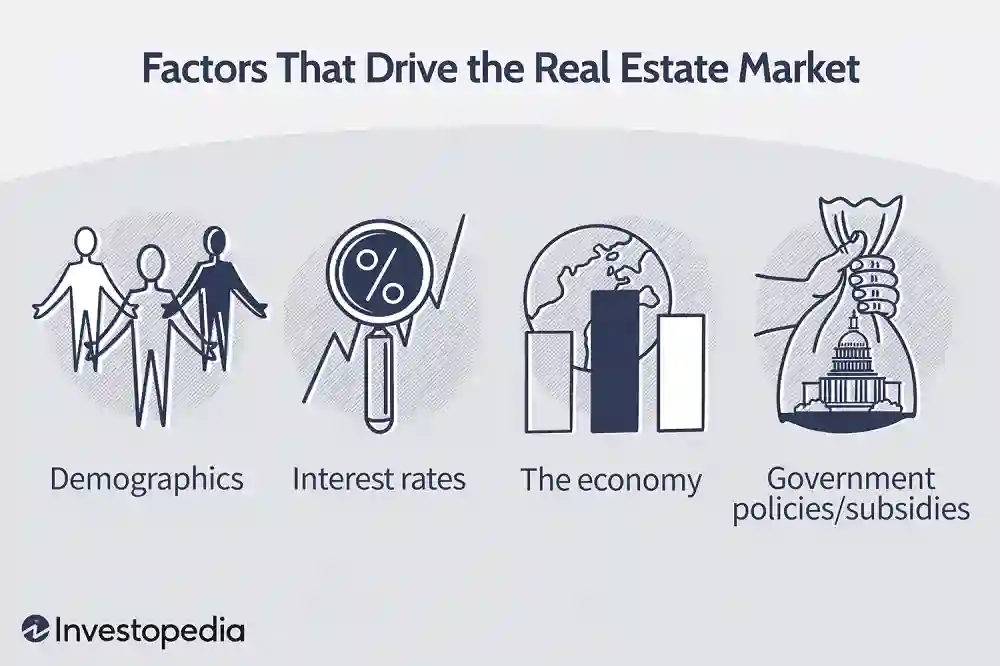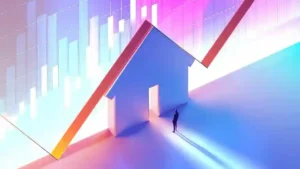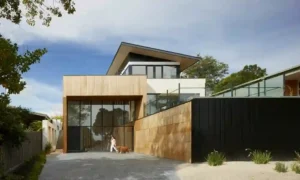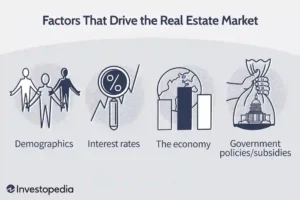How the Economy Impacts Real Estate Values and Sales

So, here’s the deal—real estate isn’t just about picking a nice place to live or finding an investment that’ll make you money. It’s deeply tied to the economy. The moment the economy sneezes, real estate catches a cold. And I’m not just talking about interest rates—though, trust me, those suckers have more influence on your mortgage than I ever realized. Anyway, let’s take a stroll through the ways how the economy impacts real estate values and sales might change your plans, whether you’re looking to buy, sell, or just daydream about a beach house you can’t afford (like me).
The Butterfly Effect of Economics on Real Estate
It’s like this: The economy’s like a big machine, and when something small gets thrown in—like, say, a hike in gas prices—the whole system shifts. You wouldn’t think it, but that’s how the economy impacts real estate values and sales. Let me break it down.
Inflation: The Silent Price Hike
Oh, inflation. That sneaky little rascal. You know, the kind that turns your grocery run into a horror show. Well, inflation also takes a toll on real estate prices. When everything gets more expensive:
- Construction costs rise.
- Builders push prices up because they need to cover their own costs.
- Homebuyers end up looking at homes they can’t afford.
And this is exactly how the economy impacts real estate values and sales. I mean, back in 2021, I couldn’t even afford a used couch, let alone a down payment.
Interest Rates: Mortgage Mayhem
You know those interest rates the Fed keeps messing with? Yeah, those bad boys control how much you pay for a mortgage. High rates? Your monthly payment shoots up faster than your stress level when your internet’s on the fritz.
- When rates climb, fewer people are willing to drop serious cash on a home.
- Higher rates = less buying = less demand = price drop.
Yup, how the economy impacts real estate values and sales becomes painfully clear. You see it all the time: people waiting to buy because they just can’t swing a 7% mortgage rate.
Consumer Confidence and Your Local Market
Positive Vibes = Home Buying Frenzy
When people feel like they’re winning in life (a.k.a. their job is secure, they’ve got savings, etc.), they’re more likely to:
- Buy a house.
- Maybe even go for something bigger than they actually need (no judgment here, I once bought a six-pack of fancy cheese because I thought I deserved it).
- Real estate values go up.
- Sales skyrocket.
I saw this first-hand when my cousin in Austin decided to grab a condo after her promotion—everyone around her was doing the same. It felt like the market was roaring, and how the economy impacts real estate values and sales became ridiculously apparent.
Economic Downturn = Panic Mode
But, flip that coin over and look at what happens when things go south. Suddenly, everyone’s holding onto their cash like it’s the last roll of toilet paper before a storm.
- People delay buying houses.
- Sellers cut prices to attract buyers.
- The market? It stalls. (Don’t you love it when the thing you’ve been waiting for doesn’t show up, like the pizza delivery guy 30 minutes after you ordered?)
When the economy dips, how the economy impacts real estate values and sales is like night and day. Prices fall. People pull back. It’s a mess. And I’ve been there—remember that time my dad tried to sell his house right before the 2008 crash? The poor guy couldn’t give it away.
The Workforce and Its Real Estate Ripples
Let’s not forget the way the workforce plays into this. I used to joke about people getting laid off, but honestly, the real impacts are felt by the housing market.
Unemployment: The Quiet Killer
When unemployment rises:
- People aren’t looking to buy new homes.
- Sellers get desperate and drop prices.
- Real estate activity slows to a crawl.
I remember when a bunch of folks in my town got laid off after a factory shut down. Suddenly, houses that were worth $250,000 last year were going for $180,000. Talk about a price drop, huh? That’s how the economy impacts real estate values and sales right there.
Migration Patterns: Seeking Greener Pastures
Sometimes, a whole bunch of people pick up and leave town for better job opportunities. When that happens, the local housing market can take a hit.
- Higher inventory on the market.
- Fewer buyers looking to settle.
- Decreasing values.
I remember back when tech giants were moving to Texas—my neighbor, Frank, tried selling his property in Silicon Valley. Nothing. Zilch. How the economy impacts real estate values and sales isn’t just numbers; it’s real people struggling to unload homes.
The Big Picture: Economics and Home Value
Supply and Demand: The Ultimate Tug-of-War
Ultimately, what the economy does always circles back to this age-old problem: supply and demand. When demand is high and supply is low, prices go up. When it’s the opposite, prices tank.
- More buyers, fewer houses? Prices spike.
- More houses, fewer buyers? Prices drop.
Fast forward past three failed attempts at buying a house… now you’re seeing the truth in how the economy impacts real estate values and sales. It’s all about what the economy decides to throw your way.
Government Regulations and Policies
Oh, and let’s talk about the government for a minute. They can also affect housing. Tax breaks, or lack thereof, can shift the entire market.
- The first-time homebuyer tax credit from back in the day? That gave people an incentive to buy homes when the economy was in a slump.
- Zoning laws and property taxes—don’t even get me started on how they can throw a wrench in things.
I learned the hard way when I got bogged down by zoning laws while trying to buy a cute little fixer-upper. How the economy impacts real estate values and sales also includes the fine print!
Wrapping It Up—But Not Really
To sum up everything—well, kinda—how the economy impacts real estate values and sales boils down to this: When the economy’s thriving, the market’s hot. When it tanks, well, you can bet that house prices are likely going to follow. But remember, there are always pockets of opportunity, like when your neighbor finally gives up trying to sell his two-bedroom during a recession (I almost took that deal myself—almost).
Anyway, here’s the kicker: the economy isn’t something you can control, but if you understand how it shapes the housing market, you’ll be in a much better position to ride the wave.







